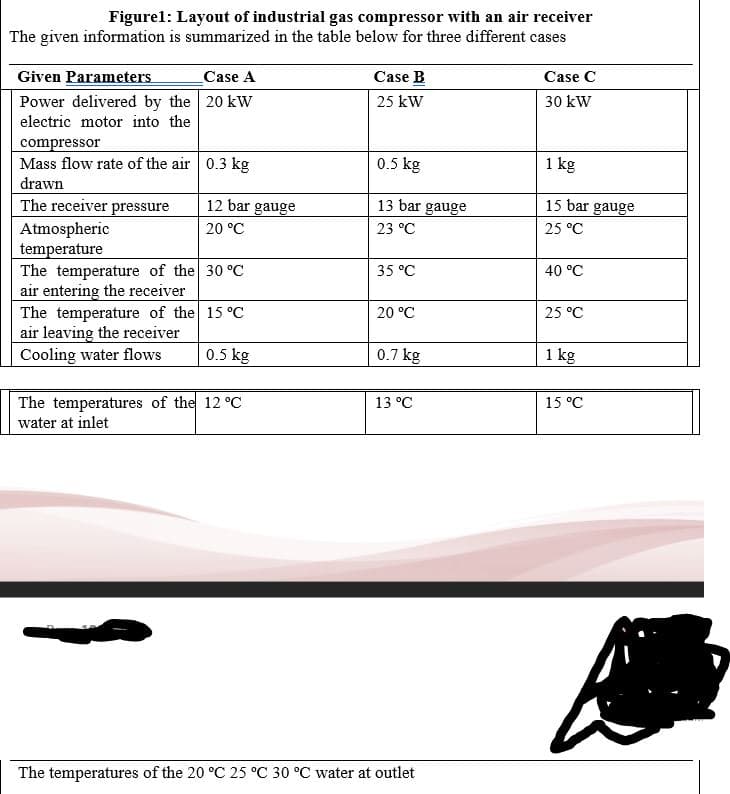Investigate the effect of varying mass flow rate ( m in kg/s) of the cooling water on heat input to the compressor and heat removed by the cooling water. In order to solve this task, you have to assume different mass flow rates to investigate the relationship between mass flow rate, heat input to the compressor, and heat removed by the cooling water, you can use Matlab or EES and present your results in a graph form.
Investigate the effect of varying mass flow rate ( m in kg/s) of the cooling water on heat input to the compressor and heat removed by the cooling water. In order to solve this task, you have to assume different mass flow rates to investigate the relationship between mass flow rate, heat input to the compressor, and heat removed by the cooling water, you can use Matlab or EES and present your results in a graph form.
Elements Of Electromagnetics
7th Edition
ISBN:9780190698614
Author:Sadiku, Matthew N. O.
Publisher:Sadiku, Matthew N. O.
ChapterMA: Math Assessment
Section: Chapter Questions
Problem 1.1MA
Related questions
Question
Task 4
.
Investigate the effect of varying mass flow rate ( m in kg/s) of the cooling water on heat input to the compressor and heat removed by the cooling water.
In order to solve this task, you have to assume different mass flow rates to investigate the relationship between mass flow rate, heat input to the compressor, and heat removed by the cooling water, you can use Matlab or EES and present your results in a graph form.

Transcribed Image Text:Figurel: Layout of industrial gas compressor with an air receiver
The given information is summarized in the table below for three different cases
Given Parameters
_Case A
Case B
Case C
Power delivered by the 20 kW
25 kW
30 kW
electric motor into the
compressor
Mass flow rate of the air 0.3 kg
drawn
The receiver pressure
0.5 kg
1 kg
12 bar gauge
13 bar gauge
15 bar gauge
Atmospheric
temperature
The temperature of the 30 °C
air entering the receiver
The temperature of the 15 °C
air leaving the receiver
Cooling water flows
20 °C
23 °C
25 °C
35 °C
40 °C
20 °C
25 °C
0.5 kg
0.7 kg
1 kg
The temperatures of the 12 °C
13 °C
15 °C
water at inlet
The temperatures of the 20 °C 25 °C 30 °C water at outlet
Expert Solution
This question has been solved!
Explore an expertly crafted, step-by-step solution for a thorough understanding of key concepts.
Step by step
Solved in 3 steps with 3 images

Knowledge Booster
Learn more about
Need a deep-dive on the concept behind this application? Look no further. Learn more about this topic, mechanical-engineering and related others by exploring similar questions and additional content below.Recommended textbooks for you

Elements Of Electromagnetics
Mechanical Engineering
ISBN:
9780190698614
Author:
Sadiku, Matthew N. O.
Publisher:
Oxford University Press

Mechanics of Materials (10th Edition)
Mechanical Engineering
ISBN:
9780134319650
Author:
Russell C. Hibbeler
Publisher:
PEARSON

Thermodynamics: An Engineering Approach
Mechanical Engineering
ISBN:
9781259822674
Author:
Yunus A. Cengel Dr., Michael A. Boles
Publisher:
McGraw-Hill Education

Elements Of Electromagnetics
Mechanical Engineering
ISBN:
9780190698614
Author:
Sadiku, Matthew N. O.
Publisher:
Oxford University Press

Mechanics of Materials (10th Edition)
Mechanical Engineering
ISBN:
9780134319650
Author:
Russell C. Hibbeler
Publisher:
PEARSON

Thermodynamics: An Engineering Approach
Mechanical Engineering
ISBN:
9781259822674
Author:
Yunus A. Cengel Dr., Michael A. Boles
Publisher:
McGraw-Hill Education

Control Systems Engineering
Mechanical Engineering
ISBN:
9781118170519
Author:
Norman S. Nise
Publisher:
WILEY

Mechanics of Materials (MindTap Course List)
Mechanical Engineering
ISBN:
9781337093347
Author:
Barry J. Goodno, James M. Gere
Publisher:
Cengage Learning

Engineering Mechanics: Statics
Mechanical Engineering
ISBN:
9781118807330
Author:
James L. Meriam, L. G. Kraige, J. N. Bolton
Publisher:
WILEY